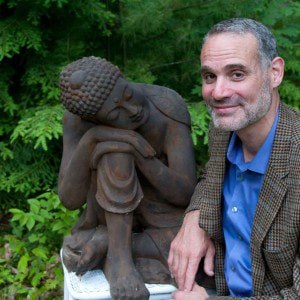
When it comes to spiritual development we tend to be perfectionists and also hypocrites. I will address perfectionism in this post and hypocrisy in another.
I’ve read a lot of books on Buddhism and mindfulness over the past thirty years. Most of them inadvertently exploit our perfectionistic tendencies. We just don’t want some liberation, we want perfect liberation. And many of these books promise such.
There is a basic confusion between a monastic and lay path. The Buddha was a monastic and a renunciant. He relinquished his family to pursue a path of discovery. He attained nirvana and he taught a path for everyone to attain it as well.
We are confused by nirvana. Nirvana sounds sexy, transcendent, and would certainly be proof that we are worthy spiritual seekers. It is the holy grail of Buddhist practitioners. I will talk more about nirvana in a moment. We think we want this but in reality we want something else. Unless you are a renunciant monk, attainment of an enduring nirvana is not a realistic goal.
Our confused longing for nirvana is, in part, based on misunderstanding what it is. Nirvana means cessation or blowing out. When the fires of greed, hatred, and delusion are no longer stoked with more fuel, that is craving and grasping, the fire goes out. Nirvana is what is when all this other stuff ceases. It is not some state of mystical transformation. It is the simply the removal of what gets in the way (simple in concept but not simple in practice).
Living without craving and grasping is possible and a worthwhile pursuit. Here, again, I think it is better to think of a relative reduction of craving and grasping rather than their elimination. Paradoxically, the very goal to get rid of desire inserts new desire into the process, thus keeping us from the goal.
If you are a monk devoting your life to the path, it is reasonable to work towards the goal of nirvana, but for those of us with jobs, families, and bodies, it is not a reasonable goal. What we want is a relative reduction in desire to reduce but not eliminate the stresses, dissatisfactions, miseries, and sufferings of life.
We need to take the middle path in our efforts to embrace the Buddha’s middle path.
Striving for perfection is a set-up for failure. What we want to accomplish is a shift in the suffering: wisdom ratio. We investigate our attachments not with an eye to eliminate but to become more fluid, responsive, and free in our relationships to people, things, and experiences. Changing that ratio is a monumental task and requires a constant vigilance. Any movement in the direction of wisdom will make the world a better place.
Don’t buy the promise of the happiness that comes without attachments. We will continue to be attached to our loved ones and we will continue to pursue sense pleasures. The difference will be that we are not owned by these relationships or pursuits. We won’t base our entire identity upon them. We won’t make our self-worth contingent upon them.
We will live in the world in a relatively liberated way and this is a huge accomplishment.
Be mindful how perfectionism may be playing into your meditations, studies of the dharma, or anything else that you do.

